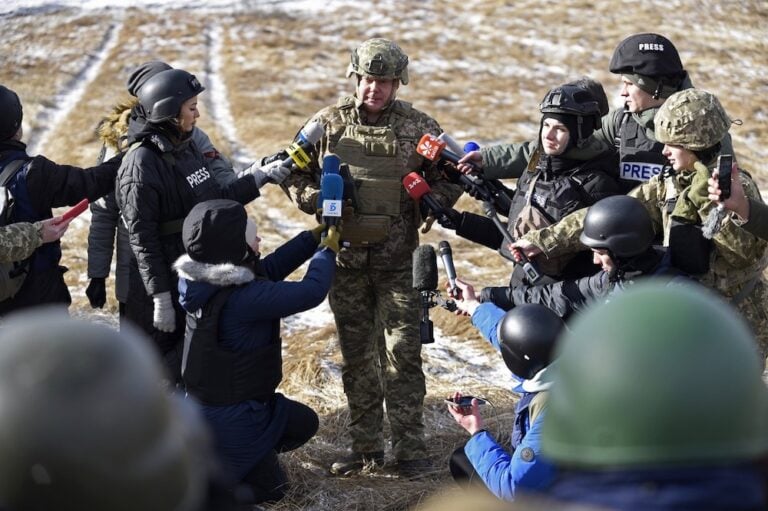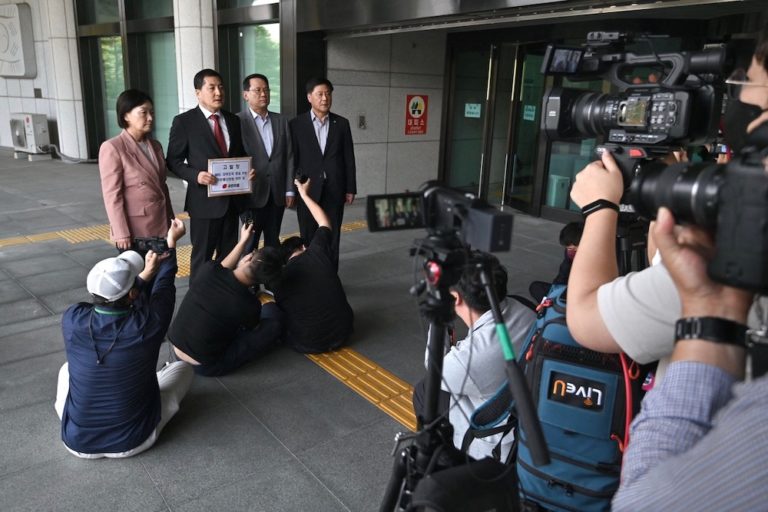The recent stifling of critical voices in South Korea, including cases of arrests, deportation, and criminal defamation hearings in the past seven days, indicates a worrisome climate for press freedom and free expression.
Excerpt of a 16 January 2015 CPJ Blog post by By Sumit Galhotra/CPJ Asia Program Research Associate,
South Korea has been hailed by many as a bastion for democracy and press freedom, especially in comparison to its twin to the north, which for years has been featured on the Committee to Protect Journalists’ most censored list. However the recent stifling of critical voices in South Korea, including cases of arrests, deportation, and criminal defamation hearings in the past seven days, indicates a worrisome climate for press freedom and free expression.
On Friday, independent journalists Choo Chin-woo and Kim Ou-joon appeared before an appeals court in Seoul for a ruling in the criminal defamation case brought against them for their reporting, according to news reports. The co-hosts of satirical podcast Naneun Ggomsuda, who say they have 10 million listeners, had been accused of defaming the brother of President Park Geun-hye, according to news reports. The appeals court acquitted the journalists but their case, and three others this week, have highlighted just how precarious the climate for free expression in South Korea is.
On January 14, South Korean prosecutors announced they had arrested Hwang Sun, a former politician and pro-unification activist, on charges of breaking the country’s National Security Law, which prohibits praise, encouragement, or propaganda for North Korea, news reports said. The two neighbors signed an armistice in 1953 after the three-year Korean War but remain in a technical state of war. Hwang has been accused of making sympathetic comments on a YouTube channel and writing blog posts praising North Korea’s founder Kim Il Sung, according to news reports.


